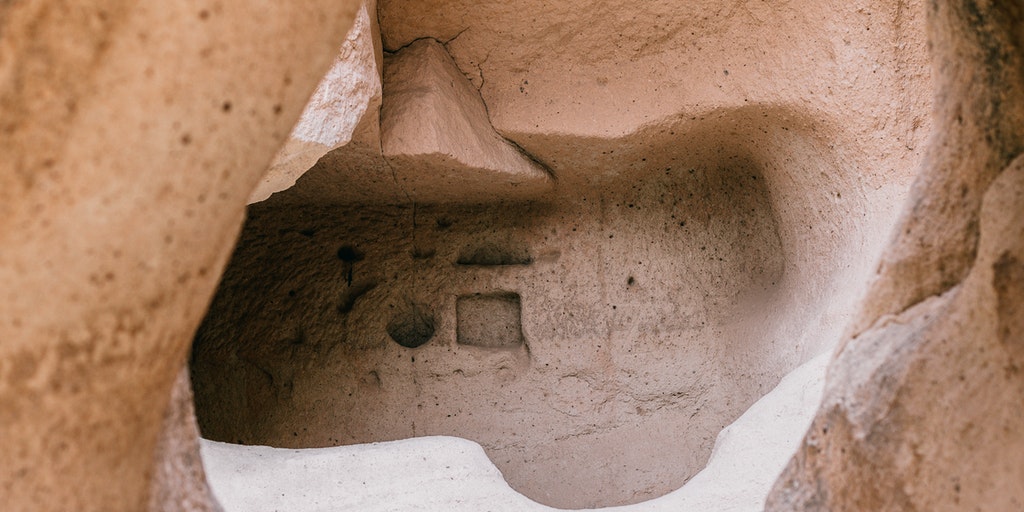The wisdom from above

“Who is wise and understanding among you; let him show out of a good conversation his works in meekness of wisdom…But the wisdom from above first is pure, then peaceful, gentle, yielding, full of mercy and good fruits, unquestioning, unfeigned” (James 3:13, 17)
“Heaven is our home” we sing in one of our hymns. If that is the case, this should be seen in our lives. That is why James presents to his readers the wisdom from above. We learn in this wonderful epistle how these two worlds, the one from above and the other from beneath, are placed opposite to one another. The challenge is: which world do we promote in our daily lives? Let us study together seven points with regard to this passage.
1. The School Of God
My first point is this: as believers we are in the school of God. Do we like being in the school of God? We read in James 1:2, “Count it all joy, my brethren, when ye fall into various temptations.” Are we to be happy when difficulties, trials and afflictions come our way? Yes, they too are instruments for our education as we go through God’s school. It is therefore not surprising when some say, “I don’t like being in God’s school, because of the trials which this involves.” Of course, that depends on how we look at it. Being trained in God’s school, we must understand that God will use various methods for our instruction, of which trials may be but one. There is a remarkable verse that supports this thought: “But we do know that all things work together for good to those who love God,” or to paraphrase it freely, “We know that God makes all things work together for the good of those who love Him” (Romans 8:28).
When we consider the school of God, the idea is that there is a goal in view, and schooling is the means by which we are brought to that goal. This involves:
- teaching or instruction, in order to help the student make progress,
- discipline, so as to draw the student to conformity and
- rewards, for a task well done.
All these together are used to produce a well-balanced, mature, and spiritually intelligent student (disciple), taught in all the principles of God’s school and ready to practice what has been communicated.
As James expresses it: The school of God is for lovers of God. This may sound strange, especially if we want to go our own way, yet we are still in God’s school and God will deal with us accordingly. Remember what we read about bit and bridle in Psalm 32? It speaks about discipline as being part of the school of God. I encourage you to study the wisdom psalms, of which Psalm 32 is the first. In God’s school we start in the first grade and progress onwards. We are all familiar with this principle. We don’t begin in the sixth grade. Likewise, Psalm 32 lays down basic matters, like the forgiveness of our sins. It would seem that we enter the school of God the moment we are saved.
I would like to share another point related to this subject. In Isaiah 55:89 we read, “For My thoughts are not your thoughts, neither are your ways My ways, saith Jehovah. For as the heavens are higher than the earth, so are My ways higher than your ways and My thoughts than your thoughts.” When we speak about the school of God we not only have to learn certain things, but we also have to “unlearn” other things, because we entered this school with our mind set on our own ways. Therefore, God speaks about His thoughts as being higher than our thoughts and His ways as being different from our ways. That’s what we find out in the school of God.
The school of God also implies discipline, even for lovers of God. Perhaps we don’t like this word very much, because in our minds it has negative connotations. But really, discipline is positive. It is to draw us. In certain languages, like Dutch and German, we have a word for discipline, and its root refers to this basic thought: to draw. Discipline actually is being drawn: drawn to the Father of lights, drawn to the Lord of glory, drawn to the wisdom from above, drawn through the Holy Spirit who is in control (James 4). That is God’s principle of discipline. Now if we follow our own ways, God sometimes has to deal with us in a harsh manner, in order to remove hindrances and obstacles. He has to stop us, sometimes to force us, although He doesn’t like to do so. God acts according to the principle of attraction, but at times He has to correct us or to punish us in His governmental dealings (Galatians 6).
There was only one in the school of God (Isaiah 50 speaks about Him as being a disciple) who never needed correction. He was a true Son in God’s school. He was a real student, a real disciple, but He never needed to be disciplined, unlike you and me who need correction, and I use this word discipline in a broad sense. On the one hand this suggests that we are disciples, that we are followers of the Lord Jesus, that we are drawn to a Divine Person. On the other hand, it implies the thought of correction, when necessary. In Hebrews 12 we see that He chastises or disciplines whom He loves. Discipline will be exercised by the hand of one who loves us. This also is part of the school of God.
2. Wisdom And Discipleship In God’s School
The second point is “wisdom.” In Job 28, Job speaks about the wisdom of God that can be learned. He concludes: “Lo, the fear of the Lord, that is wisdom; and to depart from evil is understanding.” In James we read a lot more about wisdom, first in chapter 1:5. We all need wisdom, and we can go without hesitation to Him who gives freely. If we ask our God, He will give to us without reproach. Does wisdom not speak of God’s unlimited resources?
What then is wisdom? As we find in Proverbs, it means knowledge that is applied in the right way as well as at the right time. We may already have a certain understanding of God’s principles, which is good, but how do we apply these principles? Putting into practice God’s thoughts needs real dependence as expressed in a consistent prayer life. That’s why we should go to the Lord and ask for wisdom to know what to do in specific cases, in certain circumstances, and at the right time. This is wisdom. We could put the so-called Sermon on the Mount alongside James. In Matthew 5–7 the Lord gives much teaching for disciples. This is not theoretical. Read these chapters and see how practical the teachings of the Lord are. Then also read the books of Proverbs and Psalms. In these wisdom books you’ll learn very practical things. And that is what James wants to share with us: heavenly wisdom. Of course, there is an extra dimension to it, because James refers to what we see in the life of our Lord Jesus.
We could connect with this the need for discipleship. This is a way of life which responds practically to God’s wisdom. In the school of God there are disciples, learners and pupils who put these teachings into practice, by following the Lord Jesus. A disciple is always a learner. This brings us to the third point which is:
3. The Teacher In God’s School
Who is the teacher? It is our blessed Lord! Did we not notice earlier with regard to His life on earth, how He has been a learner? He was always at God’s feet. When we think of Mary, we see her on several occasions at the feet of the Lord Jesus. But do we realize that the Lord Himself was found at God’s feet? His Father would instruct Him morning by morning. Now let us examine this important point: the great Teacher was first the great Learner. Don’t we often think that after a prescribed period of training, we have learned enough? Then we stop learning and start to rely on ourselves, instead of listening to God’s voice. We also think we can tell others what to do. Obviously, that is a great mistake. In God’s school we are always learners. Therefore, we will go on learning, even if we live to be eighty-five or ninety years old. We will learn new lessons in the school of God. As long as we are on earth we will not be finished. Until the rapture we will continue to be learners in order to put into practice what we have learned. This harmony between learning and doing would open the door to teach others. To the extent that we have learned our lessons, we can communicate what we have learned to others. Thus the Teacher would use us.
Another verse comes to mind, where the Lord says, “Come unto me.” Perhaps you think of this only as the message of the gospel. But it is also for us as believers to respond when He says, “Come unto Me,” whatever the circumstances in which we are found. Even if you forget all about my seven points, you should keep this thought before you: The Lord Jesus has said “come unto Me and you will receive what you need.” Go to Him with all your burdens. Even little children and young people sometimes have terrible burdens. The question is, to whom do you go? “Come unto Me” is really an invitation.
However, the Teacher adds something to it: “Take My yoke upon you.” Are we willing to take His yoke upon our shoulders? That would mean identifying ourselves with a Master who is rejected in this world! Don’t forget for one moment that we have associated ourselves with a rejected Lord, with a rejected Messiah, with a rejected Christ (see the context of Matthew 11 and 12). But how blessed it is when we can take His yoke.
What does it mean to take His yoke? It means that we are going to be subject to God’s will in the same way that He was subject to God’s will. Let us not think that this is for the sisters only, who are to be submissive to their husbands. It is up to all believers to be subject to God’s will. We learn this in the school of God. There we have great privileges as well as responsibilities. It is there that we meet a wonderful Companion, even the One who says, “Take My yoke upon you.” This implies that He carries that yoke thus. That is real companionship. When I am subject to the will of God He says: you are My brother and sister and mother (Matthew 12:48, 50). It is the one who does the will of God and who takes this yoke upon his shoulders, to whom the Teacher says: You are My friend. Then we will have the greatest of all friends as our companion. What is the measure and standard in God’s school? It is enough for a disciple to become as the teacher. It is enough for the bondman to become as his Lord, the teacher. Too high? This is what the Teacher and Lord has in mind for disciples (Matthew 10:24–25).
Then He adds: “Learn from Me; for I am meek and lowly in heart.” This is the only right attitude: submissiveness, meekness. Do we not get easily offended? A brother or a sister says something which is perhaps not entirely right, and we get offended, or we may do something and someone else gets offended. This is not meekness. Meekness does not give and does not take offence. This is what we learn in the school of God, in the company of this amazing teacher and companion. Because:
4. The Teacher Is Our Example And Model
The Lord Jesus not only tells us what we should do; He is what we should be and do. He is what He says. In John 8:25 He says He is “altogether that which I also say to you” and thus He is the living expression of His teachings. Here is where we fall short. In James 1 it is said: “Be ye doers of the word, and not hearers only.” This is our problem. We like to hear, we like to study, but what about our practice? The Lord Jesus put into practice the things He taught. Therefore, He is a perfect example. He attracts us so much. He not only says do this, do that and don’t do that. He teaches in such a way that we love to follow Him. So, He is our model.
We may link this with the beginning of James 3 where we find that the tongue leads in a certain direction, just as the rudder steers the ship or the animal is controlled by bit and bridle. Thus we see in the Lord Jesus an Example for us. He leads us in the right direction. I like to link this with James 3:11, where he mentions the fountain of water. When we are in the company of the Lord Jesus, we will be blessed. Learning from His example, we will be encouraged, we will be refreshed, and like these fountains produce sweet water to drink. James also uses the example of a tree which produces fruits. When we are in His company, we will produce the right fruit. Psalm 1 and Jeremiah 17 and many other passages show us how we can learn from His example. The fruit of righteousness (James 3:18) and the fruit of the Spirit (Galatians 5:22–23) link themselves with the fruit of holiness, which we have seen earlier (Hebrews 12).
5. Progress And Maturity
This point is directly connected with what we have seen already. James’ exercise was to help his brethren grow up to spiritual maturity. Many of our problems arise and develop because we are spiritually immature. Perhaps we have learnt a lot as “head” knowledge, but we do not put it into practice. That is a form of immaturity. Fights, conflicts and speaking against one another, are all different forms of spiritual immaturity. Our Lord, who is the divine Teacher, wants to take us through another class in His school. He takes us to His side and then teaches us, that we may grow towards maturity.
James puts two worlds opposite to one another. To which of these two worlds do we belong? Either we belong to God’s world, to the Father of lights, to the Lord of Glory, to the wisdom from above, or we are subjects of Satan’s world. In chapter 3 he puts both wills beside one another and he shows;
- firstly, the difference in origins,
- secondly, the difference in the methods used, and
- thirdly, on the positive side, the results in spiritual growth and maturity.
Growth can involve what is painful. Even in the natural realm, when children grow up and reach puberty, this time of growth may be a painful process. Those who are older will remember these painful experiences. This is another aspect we find in James 3, where growth will involve a purification process in God’s school. Some other passages may help us to understand why this is so. In Luke 9, on the Mount of Transfiguration, we read how the Lord’s face was changed before His disciples. This is an illustration of how the disciple will change in the school of God. In Malachi 3 we find the Lord seated as a gold or silversmith. He would purify the precious metals to remove the unclean elements, till He can see His own face reflected in the gold and silver. That is what happens in the school of God. The Lord is there to deal with us. He wants to help us grow, but He has to remove the obstacles. He has to remove the elements mixed with the gold and the silver that are not good. This testing and purification process is part of God’s school.
The testing in James 1 is to show that there is good material present but, at the same time, this is a painful process because the elements which are not good have to be removed. For example, self-will has to be judged and arrogance has to be dealt with. There has to be an attitude of true repentance. The Lord gradually removes these negative elements, and He does it with divine wisdom and care, never forgetting the purpose He has in view: our “growth.” This purifying and refining process is part of growing up. He uses trials and tribulations. Although it is not pleasant, the end is very positive. He will not be satisfied until this glorious result has been achieved. Thus it is that He leads us to maturity.
6. Christ Reproduced In His Own
We have arrived at the sixth point: the final result of this formation and purification process. The objective is not only spiritual growth in itself, which is very important, but rather what we read in verse 17: “the wisdom from above is pure, peaceful, gentle.” That is Christ Himself, but reproduced in you and me. Although “heaven is our home”, heaven is also right here, seen in you and me. Christ wants to display Himself in you and me. The Lord is rejected in this world, but now He wants to use believers, that they may display Him. In this way we may be His witnesses, His disciples, showing Him forth as this heavenly wisdom in its seven beautiful features. These seven points concerning the heavenly wisdom are put over against seven points of the devilish wisdom. Comparing them, you can see the two different origins, the two different messages and the two different results. On the positive side the final result is that His character is reproduced in you and me. That is what God, the Father of lights, wants to obtain. You call yourself a Christian? Then God says: I want to see Christ in you and nothing else. And this is what the Holy Spirit would produce (Galatians 5:23; Philippians 4:8). He will produce these fruits: Christ in you and me. Results towards God, results towards men and also a change as to ourselves. His features will be reproduced.
7. Who Is Wise?
Why is this so important? Because we are living in the closing days of this dispensation, and God is looking for wise men even at the very end. Think of Daniel and his friends, who were wise in days of great change and trial. Think of the future remnant among the Jews, who will have acquired special wisdom in God’s school. But now it is for us to learn wisdom in God’s school. There are four elements connected with this question, which we find in four different Scriptures.
- Psalm 107:43: Wisdom is based on redemption and is acquired in submission to God’s ways (see the whole Psalm).
- Jeremiah 9:12: Wisdom understands God’s dealings with His own people in judgment. The prophet Jeremiah was not only well taught, but he also submitted himself to God’s thoughts.
- Hosea 14:9: Wisdom understands God’s principles and the rightness of His ways in dealing with His people. Who is wise? Who will take these things at heart?
- This fits in with James 3:14–17, where we are at the end of the Jewish “economy” (before the destruction of the temple), which is an illustration of the end of the present dispensation. Compare also Revelation 13:18 for those who will go through the Great Tribulation: “Here is wisdom.”
It is because we are at the end of the present dispensation that we have the special privilege of learning more about the ways of God. James encourages his readers to become familiar with the wisdom of God, because this is much needed by those who are living in a mixed condition of things. Matters are becoming increasingly difficult to such an extent that often we have no idea what to do. So who is wise amongst us? Let us learn here in the school of God. We are living in very dark days, but the more we study in the school of God, the more we will be conformed to our blessed Lord and the better we will shine for Him.
We read about the Father of lights. He wants us to be shining as lights. Especially in our days it is very important to focus our attention on the Lord, who is the Sun of righteousness and we, believers, are like planets turning in orbit around Him. He is the very center, the Lord Jesus, the Son of God. He is the Sun and we are attracted by His glory, so that we can reflect His light in various ways in the dark world where we live. May the Lord help us.





